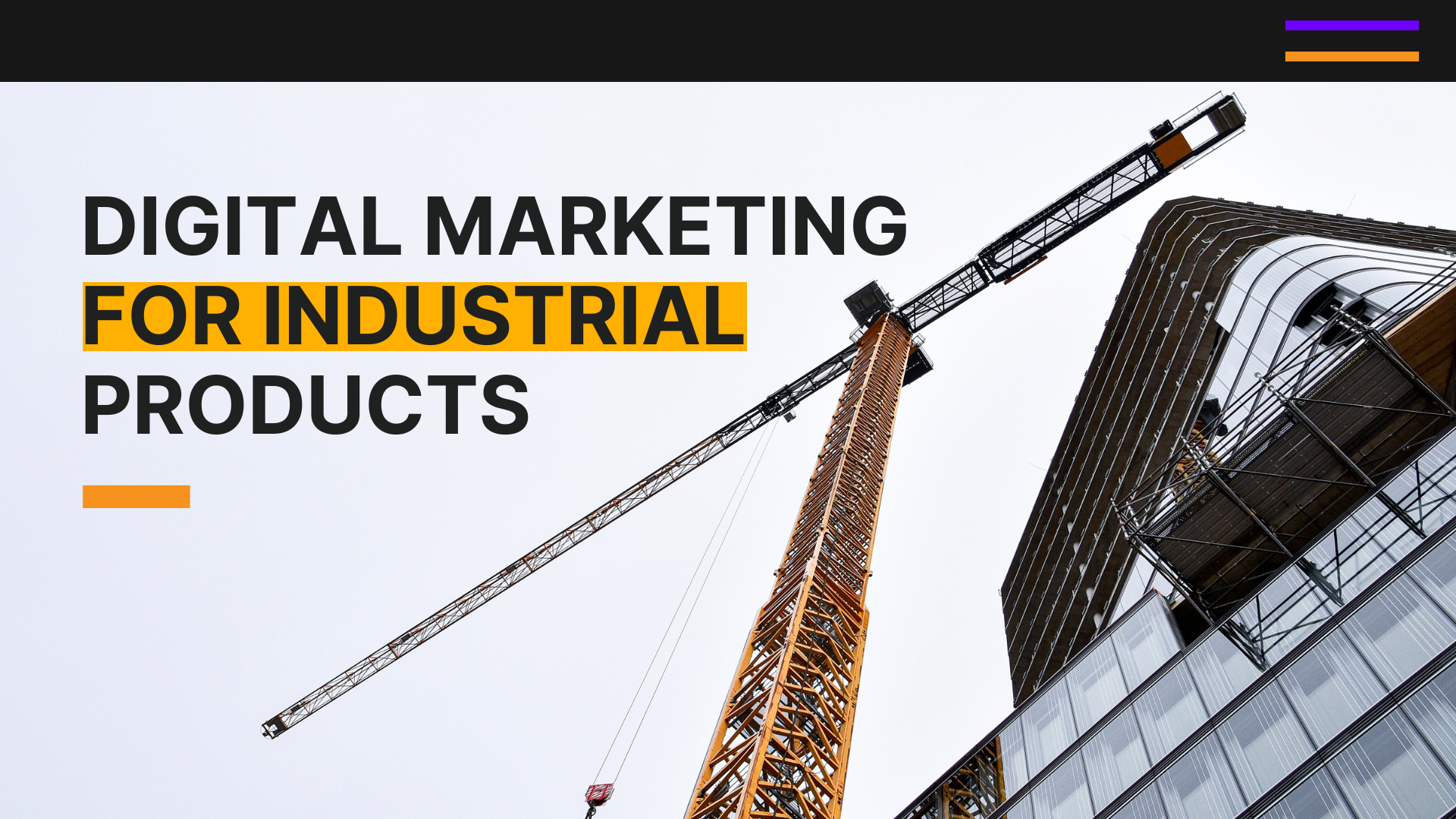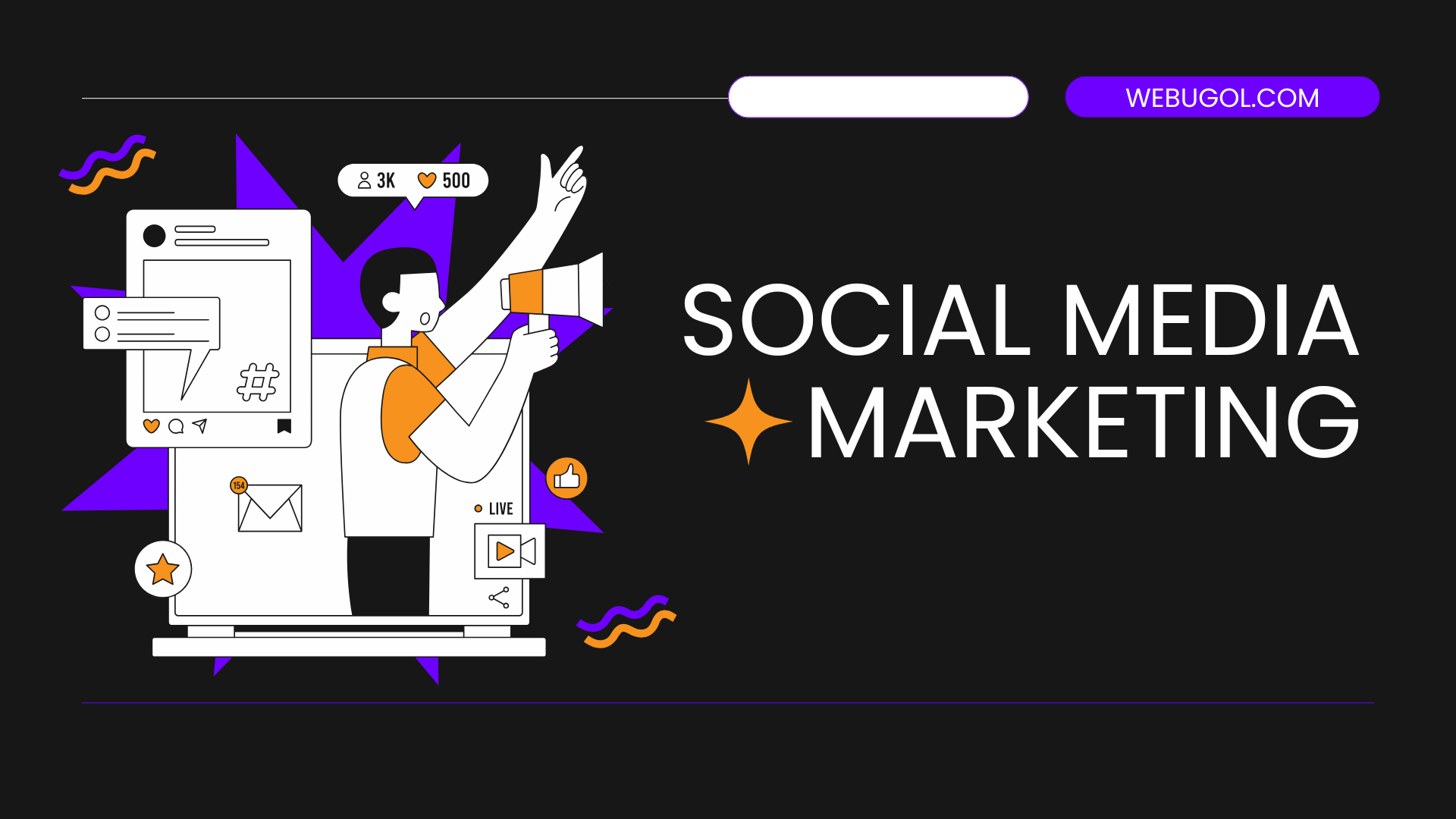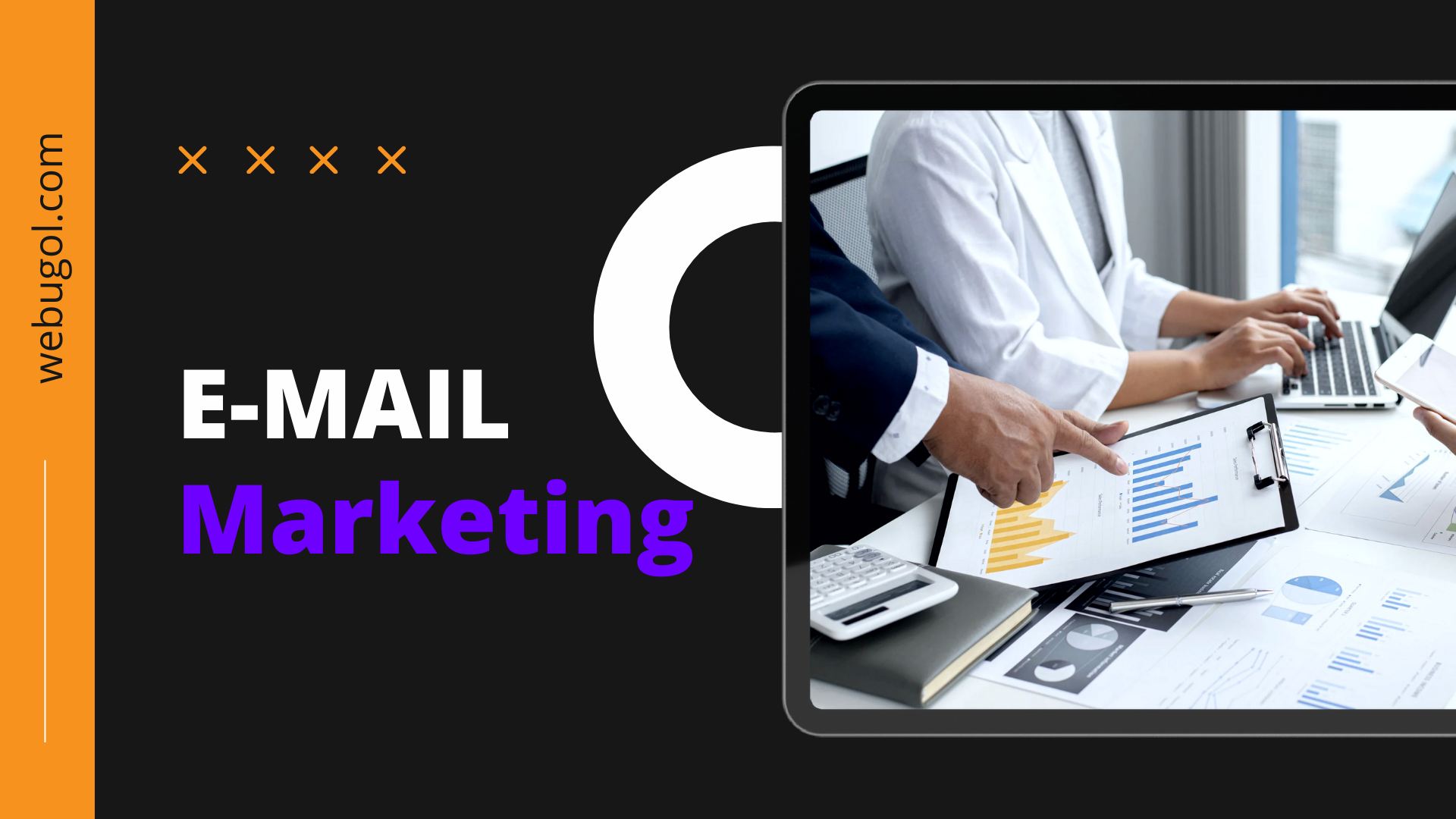How Digital Marketing Can Drive Sales for Industrial Products
The industrial product sector is a basic foundation of the global economy. It includes a wide spectrum of goods, ranging from machinery and chemicals to electronics and raw materials. Despite its importance, this sector experiences market fluctuations, protracted sales cycles, and high levels of rivalry. Industrial internet marketing seems to be a necessary tool to negotiate today’s fast-changing market scene. Industrial enterprises may increase visibility, communicate with buyers, and sell by using digital channels. We will explore how industrial sector development and higher sales can result from effective digital marketing.
Challenges of the Industrial Marketing
Industrial products are complicated, specialized, and expensive. In this industry, the buyer journey is complex usually including several stakeholders including engineers, procurement managers, and B2B buyers. For educated purchases, these audiences need detailed information. Developing online reputation and trust is mostly dependent on regular contact, providing value-rich material, and specifically addressing industry-specific issues. Industrial digital marketing offers cost-effective ways to reach more people, including PPC campaigns and social media ads. Industrial businesses may overcome barriers and improve sales with the correct plan in place.
Benefits of Digital Marketing for Industrial Products
Digital marketing helps firms reach more people and generate leads through customized campaigns. Generally speaking, digital techniques offer a better return on investment and are less expensive than more conventional marketing. Digital marketing also provides insights and strengthens customer interactions from awareness to decision-making.

Important Benefits of Digital Marketing for Manufacturers:
- Increased Brand Visibility
- Measurable Results
- Targeted Advertising
- Enhanced Customer Engagement
- Lead Generation and Conversion
-
Improved Customer Insights
Key Digital Marketing Services for Industrial Products
Manufacturing companies require the right industrial internet marketing methods to increase sales. Consider these digital marketing tactics:
- Content Marketing
- Search Engine Optimization
- Pay-per-click Advertising
- Social Media Marketing
- Email Marketing
SEO and Content Marketing
Search Engine Optimization improves the exposure of industrial products, so enabling their discovery by pertinent B2B buyers actively looking for solutions.
This kind of internet marketing for industrial companies educates and nurtures potential customers throughout their decision-making process. This industrial digital marketing strategy develops a company’s authority, reliability, trust, and credibility. Businesses may build long-term relationships and convert buyers by delivering interesting and relevant information throughout their journey.
Key Elements of an Effective SEO:
-
Keyword Research: Finding keywords buyers use to search for industrial products is vital. This requires understanding industry lingo and targeting specific questions with long-tail keywords.
- Quality Content: High-quality, informative content that addresses target audience needs, and pain areas builds authority and confidence. Content should engage and benefit readers.
- On-Page Optimization: Optimizing each page for users and search engines. Titles, headers, meta descriptions, and content should use targeted keywords.
- Technical SEO: Improving website speed, mobile-friendliness, crawlability, and HTTPS to improve UX and search engine indexing.
- Link Building: Backlinks from industry leaders boost domain authority and drive relevant traffic.
- User Experience: To engage visitors, providing a smooth user experience with easy navigation, fast loading times, and a responsive design across all devices.
-
Monitoring and Analytics: Tracking SEO techniques, organic traffic, and user behavior with Google Analytics and Search Console to make data-driven changes.
Industrial organizations seeking growth and visibility must understand why these industrial internet marketing elements are critical. Each part improves digital presence. These factors form a strong SEO strategy that increases traffic, exposure, and company goals in a competitive market.
Key Elements of Successful Content Marketing:
- Audience Research and Segmentation: Understanding your target audience’s segments, demands, and pain areas is crucial. Businesses can target specific audiences via buyer personas.
- Content Strategy Development: A well-planned content strategy specifies content types, distribution methods, and publication dates. Strategic planning ensures messaging coherence.
- Compelling Storytelling: Storytelling engages and simplifies complex concepts. Narratives, case studies, and client testimonials can help make industrial items more memorable.
- Content Variety: Offering blog entries, videos, infographics, webinars, and podcasts accommodates varied audience preferences and learning methods. Different content forms keep viewers coming back.
- Integration with SEO: Content development with keyword research optimizes search visibility and organic traffic. Optimize content for search engines without sacrificing readability or usability.
- Distribution and Promotion: Social media, email newsletters, and industry forums help content reach and engage more people. Paid promotion improves visibility and targeted traffic.
- Measurement and Feedback: Content performance indicators like views, likes, shares and conversion rates reveal audience preferences. Data-driven strategy refinement provides continual improvement and goal alignment.
With balanced internet marketing for industrial companies, a company may effectively express its value offer, create client connections, and grow long-term.
 Social Media Marketing
Social Media Marketing
Industrial companies benefit from social media marketing’s direct and meaningful connections with target audiences. Content that resonates with industry experts and decision-makers is abundant on LinkedIn and YouTube. These industrial digital marketing services let companies demonstrate their knowledge, innovations, and brand authority through educational content and storytelling.
Digital marketing for industrial products encourages community interaction and debate, giving companies important audience input and insights. Potential customers value transparency and accessibility, which develops trust and brand loyalty.
Key Elements:
- Consistent Branding: A consistent brand identity throughout social media improves brand familiarity and image. To guarantee every post promotes the company’s values and objectives, use consistent logos, color schemes, and messaging.
- Engaging Content Strategy: Creating and sharing audience-relevant content is vital. This comprises promotional, instructive, and amusing content suited to your demographic’s requirements and interests.
- Active Community Management: Responding to followers’ comments, messages, and mentions creates community and trust. To build loyalty and engagement, have meaningful conversations, solve problems, and appreciate comments.
- Creative Visual Content: Images and videos engage audiences better than text. High-quality images that convey brand messaging clearly and compellingly are essential to have.
- Paid Advertising Opportunities: Companies can reach more people with paid advertising than organically.
When combined, these industrial internet marketing factors build an SMM strategy that strengthens a company’s digital visibility and audience engagement.
Pay-Per-Click Advertising
PPC ads maximize engagement and conversion by showing advertising to potential purchasers who are most likely to be interested in the products. PPC also gives you instant visibility on search engines and social media, unlike organic techniques. Click-through rates, conversion rates, and return on ad spend allow industrial companies to evaluate each campaign in real time.
Key Elements:
-
Targeted Keyword Selection: Choose the proper keywords to ensure your adverts show in relevant searches. Effective keyword research helps firms find high-intent terms that shoppers will use. The correct audience sees better adverts due to this precision.
- Compelling Ad Copy: The ad must capture attention, provide value, and have a clear CTA. Strong CTAs encourage viewers to visit a website, sign up for a service, or buy.
- Accurate Audience Targeting: Google Ads lets advertisers target by region, device, age, and more to maximize ad effectiveness.
- Effective Landing Page Design: The ad and landing page must match to keep users engaged and convert. A well-designed landing page fulfills the ad’s promise, gives further information, and features an easy-to-follow path, such as a form submission or buy button.
- Budget Management and Bid Strategy: Ad expenditure is optimized for ROI by managing budgets and choosing bid tactics. It involves setting daily budgets, CPC restrictions, and automatic or human bidding according to campaign goals and resources.
- Continuous Monitoring and Optimization: Regularly assessing PPC campaign results including CTR, conversion rates, and cost-per-conversion is crucial. Businesses can increase campaign performance and ongoing improvement by examining this data and adjusting ad copy, keywords, and targeting techniques.
-
A/B Testing: A/B tests determine which PPC ad elements are most appealing and effective. Advertisers may improve performance and digital marketing efforts by comparing headlines, content, and graphics to create more compelling advertising.
Email Marketing

Email campaigns are crucial for B2B qualified leads. Companies can guide prospects through the decision-making process by providing instructive and helpful information.
Key Elements:
-
Personalization: Customizing email content to recipient preferences and behaviors improves engagement. First names, personalized messaging based on previous interactions, and list segmentation make communications feel personal.
- Compelling Subject Lines: Since subject lines are the first thing readers see, they must be appealing and concise. The subject line should intrigue, benefit, or create urgency to get the reader to open the email without misleading them.
- Valuable Content: Informative, entertaining, and audience-relevant material builds authority and trust. This can include market insights, advice, unique offers, and company updates that match the recipient’s preferences.
- Responsive Design: Emails must be accessible on all devices to maximize reach and engagement. A mobile-optimized design with clear calls to action and easy navigation serves a large part of smartphone and tablet email users.
- Clear Call-to-Action: Emails should contain a clear and convincing CTA to encourage recipients to download a resource, sign up for a webinar, or buy. The CTA should be obvious and related to the email’s aim.
- Segmentation and Targeting: More exact targeting is possible by segmenting the email list by demographics, preferences, and behaviors. This method guarantees the correct message reaches the right target, enhancing conversion and engagement.
- Analytics and Optimization: Open, click-through and conversion rates must be monitored regularly. These insights help firms improve their email campaigns, explore new tactics, and increase results.
As we see, digital marketing for industrial products may improve email marketing efficacy, strengthening customer relationships and corporate results.
Account-Based Industrial Marketing
ABM targets high-value accounts with customized content and digital marketing. This method better fits with key accounts’ needs and preferences, promoting meaningful relationships.
 Key Elements:
Key Elements:
-
Target Account Identification: Finding the correct accounts to target is the key to ABM’s success. This requires finding and selecting high-value accounts that fit your company’s ideal customer profile and have significant growth and opportunity.
- Personalized Content Creation: Content must be adapted to each target account’s interests and demands. These may contain customized value propositions, case studies, and content assets.
- Cross-Channel Engagement: Reaching target accounts through numerous channels improves visibility and interaction, ensuring a consistent brand experience across platforms.
- Sales and Marketing Alignment: Sales and industrial internet marketing must work together for ABM’s success. To engage and convert high-value accounts, both teams should collaborate on tactics, insights, and coordination to exploit each team’s capabilities.
- Account-Specific Metrics and Measurement: Clear measures to assess ABM’s impact on each target account are essential. Track engagement, conversion, deal velocity, and revenue growth. Continuous assessment optimizes plans and prioritizes promising prospects.
- Relationship Building and Nurturing: Long-term, trust-based relationships are key to ABM. Engaging numerous stakeholders in each account, giving unique solutions, and providing frequent value builds loyalty and commercial connections.
Businesses can use ABM to improve account relationships, increase returns, and meet strategic growth goals by incorporating five critical features.
Digital Marketing’s Role in Boosting Industrial Sales
As the industry evolves, digital marketing is crucial for organizations trying to develop and compete. Industrial internet marketing can help organizations connect with customers in a meaningful way. Digital marketing success requires tracking key indicators and optimizing strategies based on data. Industrial enterprises can use digital channels to grow their products with the appropriate strategy or use the help of an industrial digital marketing agency. Businesses must invest time and resources in building excellent digital marketing strategies that meet their goals and target audience needs.
Industrial businesses can connect and engage their target audience, increase conversions, and succeed in the digital landscape by working hard, adapting to market changes, and using technology. To succeed in today’s competitive market, organizations must consider digital marketing as part of their business plan.
Take the next step in transforming your industrial digital presence by scheduling a consultation with Webugol today. Our team of experts is ready to assess your current strategies and provide tailored solutions to enhance your online visibility and engagement. Together, we can develop an effective approach to leverage digital marketing opportunities, optimize your campaigns, and drive measurable results!


